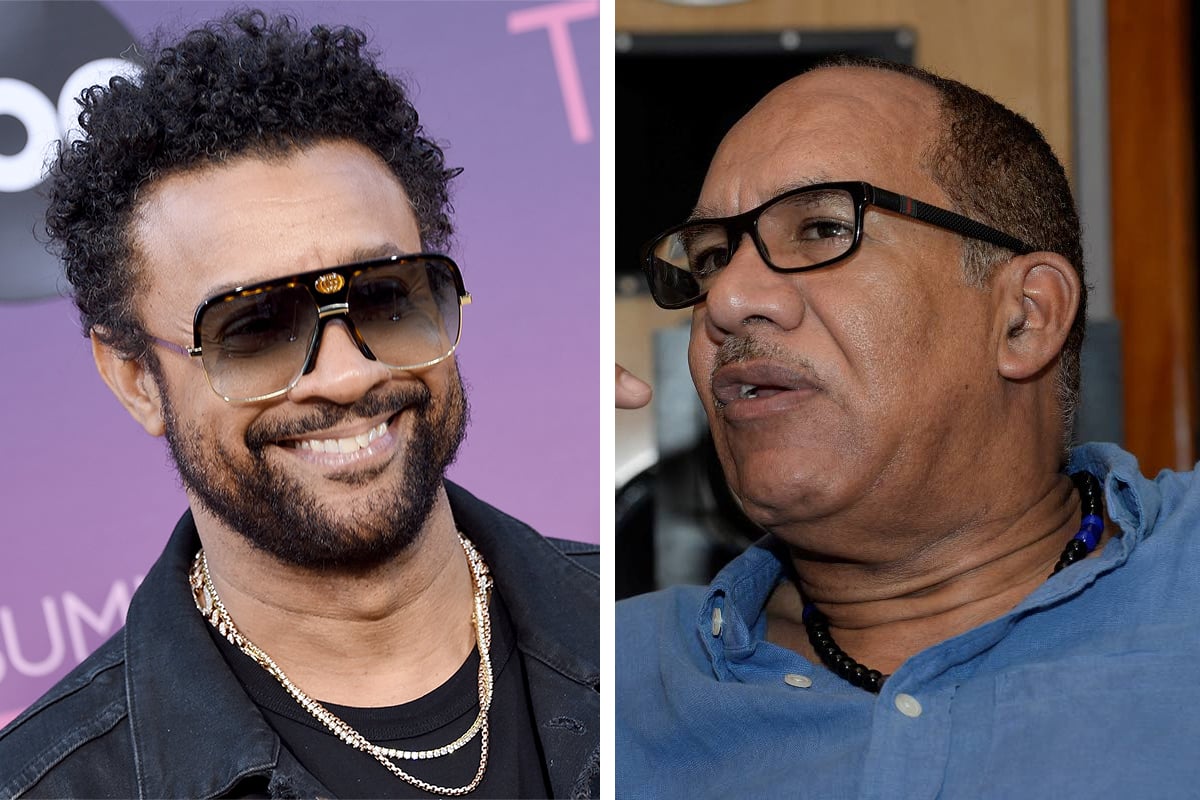Shaggy’s Former Manager Robert Livingston Says Singer “Tarnishing” His Name

Robert Livingston, Dancehall megastar Shaggy’s former manager, has decried as untruths and “gossip” the Hot Shot deejay’s ongoing negative references to him, which he says is tarnishing his name and must be put to a stop, lest he takes legal action.
On Friday, during an interview with Television Jamaica’s Anthony Miller on The Entertainment Report, Livingston was said to have been the one who had reached out to ER to give his side of what the host described as a “partnership which produced one of the best-selling albums of all time, but which broke apart many years now, amid acrimonious claims of unfair splits and mismanagement.”
“Most of it is gossip. Most of it is not speaking the truth,” Livingston began.
“Shaggy mentioned many different things and one of them that really stands out to me is the fact that (he says) he was robbed, and he was cheated of the percentage of the royalties that he was getting. I wasn’t taking 40 percent of his entire career. He is tarnishing my name about the deal that we have and it’s not the truth,” the Boombastic co-producer declared.
During the Island Music Conference, which was held three weeks ago in Kingston, Shaggy, during a panel discussion, implied that he had been hoodwinked by a former manager, a comment that earned the chagrin of Livingston, who managed the Angel artist’s career from 1993 before the partnership ended bitterly in 2011.
“Some of us are artistes that end up trusting people around us which might be the manager or something like that. I am saying it over and over again ‘managers are not supposed to touch yuh money’. That is not your manager’s job. What you put together is a team,” Shaggy had said, adding later: “I am financially secure now but I had to build that back because I was not smart; I didn’t know the game…”
The probing Miller, upon referencing Shaggy’s comments which were aired on The Entertainment Report the week before, told Livingston that: “He (Shaggy) did say if he knew then what he knows now he’d have made way more money; that an unnamed manager, not only did not know, but didn’t want to admit that he didn’t know; that managers shouldn’t touch their artist’s money; that he lost all his money, but made it back again”.
“He never mentioned you, but do you think he was talking about you?” the entertainment journalist asked.
“What you think?” Livingston asked rhetorically. “The only reason that he don’t mention my name, because he know what can be the consequence of that. There could be a lawsuit; it could be anything. He’s smart; he’s thinking.”
When Miller suggested that maybe Shaggy felt that he “should have been getting more, since he was the source of where that money was coming from”, Livingston, as he has done in the past, insisted that the deal was a fair one.
“The percentage that I was getting was very clear. It was 40 percent on production, 25 percent from publishing and 20 percent on management. And I don’t do double-dipping, so I wasn’t getting management percentage from publishing and royalties. No. I was only getting management percentage from touring,” he explained.
“Industry standard was 50/50 those days. His same lawyer that is representing him now was signing deals, production deals when artistes signed to production companies – was 50/50. Check it out…. And I gave you 60 and I take 40 from the get-go,” he added.
According to Livingston, all the decisions made regarding Shaggy’s career were taken as a team. He also said that he made extraordinary sacrifices to salvage the Grammy Award winner’s career after he was discarded by his then-record label, Virgin Records.
“Shaggy has a problem with everything because he thinks he should have been more wealthy. And I understand that too. He should have had 10 times the amount. Why? Don’t blame it on me (saying): ‘oh he was not smart enough, or he should have done this, he should have done that’”, Livingston said.
“It could have been way worse; you (Shaggy) could have had less. You could have never ever even had a career. When Virgin dropped Shaggy, I said to Shaggy: ‘I am not going anywhere. I had three job offers. And I didn’t take them. I sit there with him and I said you know what? We gonna get you back up in this thing; we gonna do it together. Because nobody was around us. Just him and I and we did it,” the Big Yard producer said.
He added: “We never had a good run with the Hot Shot album or anything that we were doing… because we were swimming upstream like a salmon. We never had it great like everybody else. We had sample; we had lawsuits; we had so many things coming at us. We had tours that cancelled. We lost almost $3 million on a commercial that we didn’t get for It Wasn’t Me. We lost $2,5 million. We lost over $15 million in that period. Lots of money we lost,” he added.
